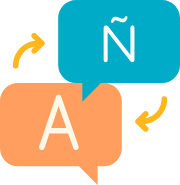Result for Immigrant rights
Strategies for language accessibility There are many ways to increase language accessibility. This section of the toolkit explores strategies to enhance how you provide access (interpretation and translation) to the languages spoken by survivors in your area. Note: interpretation and translation should not be used interchangeably. Interpretation involves conveying information orally […]
Document your work Programs should document their Language Access Plans, policies, and implementation steps as evidence of compliance with Title VI. Your abilities to document the accessibility measures you provide for survivors with LEP, with full consideration for the survivors’ safety, confidentiality, and privacy, serve as testimony of your program’s internal […]
Resource building The federal guidance notes that a small program “where contact is infrequent, [or] where the total cost of providing language services is relatively high” may not have the same obligations to meaningful access as do larger, better-resourced programs. However, because sexual and domestic violence programs provide services considered “crucial […]
Implementation Use the Language access plan template, Sections 1C “Capacity-Building” and 3 “Monitoring” for building staff work plans: Assign responsibility for all tasks: direct services tasks, that is, how to provide language access services to survivors with LEP management tasks such as selecting, procuring, and organizing translated written material; […]
Session 3 Purpose: This is the session where the enhancements to your current Plan really start to come together. This is a working session where specific goals, strategies and timelines will be proposed. Create a plan for improvement (services, outreach, systems change) There is no “one size fits all” standard for […]
Session 2 Purpose: The purpose of this session is to look at your organizational and community realities to define what “reasonable steps” your organization should or could take to provide meaningful access at this point in time. Discuss the following items among the group: What did the research reveal about: […]
Session 1 This session is focused on exploring why language access is important to your organization and how it relates to your mission. The outcome of this session is the development or review of the foundation for the overall plan. Discuss these five questions among the group What are the benefits […]
Enhance an existing plan Critical conversations to improve language access This is a process for having critical conversations within your organization in order to develop or enhance your Language Access Plan. This process will help you: articulate your purpose in providing meaningful access to services for individuals with limited English proficiency […]
Start a new plan Developing greater language access is a process. You have to start somewhere, and in order to fulfill your mission, commitment to community, and obligations, your plan needs to continue to evolve. The following process can help move your organization from having no Language Access Plan to your […]
Planning and implementation In our efforts to assist and accommodate survivors with limited English proficiency (LEP), sexual and domestic violence programs have largely operated reactively when it comes to providing language access. We respond to survivors one at a time and find ways to support their participation in the programs when […]









